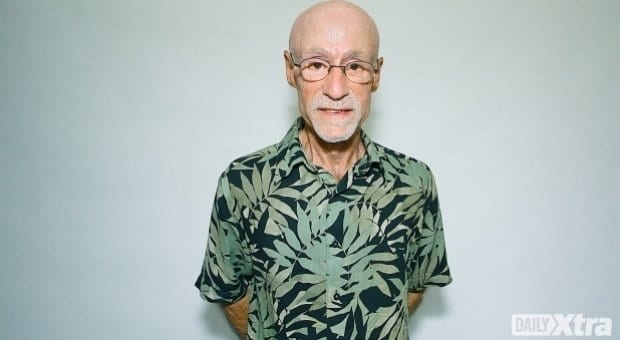The team behind Vancouver’s latest proposal to create gay seniors’ housing is hoping to merge its project with Qmunity’s proposed city-funded community centre.
While affordable housing is a hot topic for most communities in Metro Vancouver, studies suggest that gay seniors often face increased risks of health and financial insecurity, as well as isolation.
Little data has been collected on gay seniors in Canada, but statistics from the American Services & Advocacy for GLBT Elders (SAGE) paint a disturbing picture of the many challenges gay seniors face.
SAGE research indicates that seniors who fear mistreatment from healthcare providers will often delay seeking help until their health reaches a crisis point. Surveys of gay seniors in long-term care facilities showed that only “22 percent felt they could be open about their sexual identities with staff, and 89 percent predicted that staff would discriminate based on their sexual orientations and/or gender identities, and 43 percent reported instances of mistreatment.”
Other SAGE studies show that many gay seniors face higher levels of financial insecurity and often cannot afford to stay in their chosen communities. Gay seniors are less likely to have children to look after them, are less likely to have someone to call in an emergency, and face high risk of social isolation.
Alan Herbert, a former Vancouver city councillor and longtime gay activist who created a gay senior men’s discussion group called Gay and Gray last fall, says that for those in the community who grew up before 1980, the memories of open prejudice and bullying against gay people still have a strong effect.
“They don’t know whether it will be safe or not, and the tendency for many will be to go back into the closet,” he says of seniors who end up in assisted living.
Herbert says the need for affordable housing is magnified by the reality that the uncertain future at the height of the AIDS crisis didn’t encourage many gay men to buy property or invest for their retirement.
“A lot of the guys who were alive at the height of the epidemic were either sick themselves, during the years where they would have had their highest earning potential, or their friends were dying,” he explains.
The Dignity House project aims to alleviate some of these pressures on Vancouver’s aging gay population. Its proposal to develop affordable housing in Vancouver for lesbian, gay, bisexual and transgender seniors and their allies originated in August 2012 as the practicum project of local social worker Alex Sangha, who has since completed his master’s in social work.
The Dignity House proposal is now run by a 17-member advisory committee and is currently conducting a feasibility study. Sangha, still the project coordinator, thinks a partnership could benefit both his group and Qmunity.
“If we’re looking for land and Qmunity is looking for land, then we could share a site and we could build affordable housing adjacent to the community building,” he says.
Instead of competing for land, why not work together collaboratively to build something for the community, Sangha suggests.
Dara Parker, Qmunity’s executive director, is cautiously optimistic about partnering with Dignity House.
“I love the idea,” she says, noting that Qmunity has been advocating for queer seniors’ housing for a long time.
Adding a housing component would be beyond the scope of the currently envisioned 10,000-square-foot community centre, she says, but “if we’re going into a new multi-purpose development, I think that would be a great place to co-locate [Qmunity and seniors’ housing].”
“In principle, we absolutely support and are actively advocating for LGBTQ seniors-specific housing,” she continues. “We know that’s the number-one ask from older adults in the community, and it is an important piece of the housing continuum locally.”
Parker says her role might be to encourage the idea and to look for partners who could make it a reality.
Herbert acknowledges that considerable time and effort would be needed but thinks that combining the community centre with gay seniors’ housing would help both groups as they seek out funding from government and the public.
Dignity House is not the first local attempt to create housing for gay seniors in Vancouver. RainbowVision Vancouver proposed a joint venture between a local home-healthcare service provider and a US-based property developer in 2008, but so far nothing has materialized.
An affordable-housing project for gay seniors opened recently in downtown Philadelphia. Los Angeles and Minneapolis are also home to existing projects, while more proposals continue to sprout up around the US.

 Why you can trust Xtra
Why you can trust Xtra


